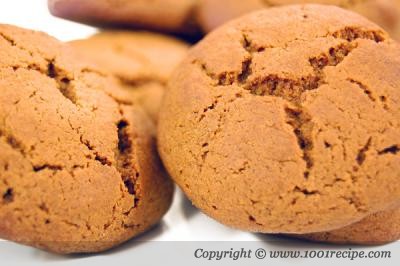دنیای زبان انگلیسی ( بهروزپور )
لغات و اصطلاح .داستان کوتاه . شعر.جوک .ضرب المثل.اشپزی.رمان. نمایشنامه.متن دوزبانهدنیای زبان انگلیسی ( بهروزپور )
لغات و اصطلاح .داستان کوتاه . شعر.جوک .ضرب المثل.اشپزی.رمان. نمایشنامه.متن دوزبانهچند توصیه ۳
The happiest of people don't necessarily
Have the best of everything
They just make the most of
Everything that comes along their way
شاد ترین مردم لزوماً
بهترین چیزها را ندارند
بلکه بهترین استفاده را می کنند
از هر چه سر راهشان قرار میگیرد
********
The brightest future will always be based on a forgotten past
You can't go forward in life until
You let go of your past failures and heartaches
همیشه بهترین آینده بر پایه گذشته ای فراموش شده بنا می شود
نمیتوانی در زندگی پیشرفت کنی
مگر غمها و اشتباهات گذشته را رها نکنی
********
گروه الهه موفقیت
The Middle Ages
The Middle Ages
The Middle Ages is like no other period in The Norton Anthology of English Literature in terms of the time span it covers. Caedmon's Hymn, the earliest English poem to survive as a text (NAEL 8, 1.25-27), belongs to the latter part of the seventh century. The morality play, Everyman, is dated "after 1485" and probably belongs to the early-sixteenth century. In addition, for the Middle Ages, there is no one central movement or event such as the English Reformation, the Civil War, or the Restoration around which to organize a historical approach to the period.
When did "English Literature" begin? Any answer to that question must be problematic, for the very concept of English literature is a construction of literary history, a concept that changed over time. There are no "English" characters in Beowulf, and English scholars and authors had no knowledge of the poem before it was discovered and edited in the nineteenth century. Although written in the language called "Anglo-Saxon," the poem was claimed by Danish and German scholars as their earliest national epic before it came to be thought of as an "Old English" poem. One of the results of the Norman Conquest was that the structure and vocabulary of the English language changed to such an extent that Chaucer, even if he had come across a manuscript of Old English poetry, would have experienced far more difficulty construing the language than with medieval Latin, French, or Italian. If a King Arthur had actually lived, he would have spoken a Celtic language possibly still intelligible to native speakers of Middle Welsh but not to Middle English speakers.
ادامه مطلب ...The Old Man and the Sea
The Old Man and the Sea is a story by Ernest Hemingway, written in Cuba in 1951 and published in 1952. It was the last major work of fiction to be produced by Hemingway and published in his lifetime. One of his most famous works, it centers upon Santiago, an aging Cuban fisherman who struggles with a giant marlin far out in the Gulf Stream.[1]
The book was dedicated to the memory of Maxwell Perkins, Hemingway's literary editor
Plot summary
The Old Man and the Sea tells an epic battle between an old, experienced fisherman and a giant marlin. It opens by explaining that the fisherman, who is named Santiago, has gone 84 days without catching any fish at all. He is so unlucky that his young apprentice, Manolin, has been forbidden by his parents to sail with the old man and been ordered to fish with more successful fishermen. Still dedicated to the old man, however, the boy visits Santiago's shack each night, hauling back his fishing gear, getting him food and discussing American baseball. Santiago tells Manolin that on the next day, he will venture far out into the Gulf to fish, confident that his unlucky streak is near its end.
Thus on the eighty-fifth day, Santiago sets out alone, taking his skiff far onto the Gulf. He sets his lines and, by noon of the first day, a big fish that he is sure is a marlin takes his bait. Unable to pull in the great marlin, Santiago instead finds the fish pulling his skiff. Two days and two nights pass in this manner, during which the old man bears the tension of the line with his body. Though he is wounded by the struggle and in pain, Santiago expresses a compassionate appreciation for his adversary, often referring to him as a brother. He also determines that because of the fish's great dignity, no one will be worthy of eating the marlin.
On the third day of the ordeal, the fish begins to circle the skiff, indicating his tiredness to the old man. Santiago, now completely worn out and almost in delirium, uses all the strength he has left in him to pull the fish onto its side and stab the marlin with a harpoon ending the long battle between the old man and the tenacious fish.
Santiago straps the marlin to the side of his skiff and heads home, thinking about the high price the fish will bring him at the market and how many people he will feed.
While Santiago continues his journey back to the shore, sharks are attracted to the trail of blood left by the marlin in the water. The first, a great mako shark, Santiago kills with his harpoon, losing that weapon in the process. He makes a new harpoon by strapping his knife to the end of an oar to help ward off the next line of sharks; in total, five sharks are slain and many others are driven away. But the sharks keep coming, and by nightfall the sharks have almost devoured the marlin's entire carcass, leaving a skeleton consisting mostly of its backbone, its tail and its head. Finally reaching the shore before dawn on the next day, he struggles on the way to his shack, carrying the heavy mast on his shoulder. Once home, he slumps onto his bed and falls into a deep sleep.
A group of fishermen gather the next day around the boat where the fish's skeleton is still attached. One of the fishermen measures it to be 18 feet (5.5 m) from nose to tail. Tourists at the nearby café mistakenly take it for a shark. Manolin, worried during the old man's endeavor, cries upon finding him safe asleep. The boy brings him newspapers and coffee. When the old man wakes, they promise to fish together once again. Upon his return to sleep, Santiago dreams of his youth—of lions on an African beach.
۰ ۲عبارت کلیدی در انگلیسی بازرگانی
Business English Expressions
1. 800 pound gorilla - the biggest, most powerful group or company
Example: "If we follow our plan to make this new software, we’re going to have a lot of competition, including from the 800 pound gorilla, Microsoft."
2. (a rising tide that) lifts all boats - something that helps all people or all groups
Example: "We’re only number three, but the current economic growth will lift all boats, so we’re sure to make a profit this year."
3. an old hand - a person who has long experience, especially in one place
Example: "He can help us set up a company in Beijing. He’s been working in China for many years and speaks Chinese fluently. He’s an old China
hand."
4. at the 11th hour - very late, at the very last minute
Example: " ."
5. on a shoestring - with limited money
Example: "They started their company on a shoestring and built it up to one of the largest companies in the world!"
6. bring to the table - whatever you can possibly offer
Example: "I will meet with Teacher Joe’s new company to show him what we can bring to the table."
7. carve out a niche - find a special market that you can control
Example: "To succeed in this competitive world, you have to focus on part of it. Try to carve out a niche and be number one in that are."
8. deep pockets - have a lot of money
Example: "If there is a price war, we won’t win because we don’t have deep enough pockets."
9. down time - when equipment of facilities are not available, so you cannot work
Example: "There will probably be a lot of down time at the conference, so I’m bringing a lot of paperwork."
10. (draw) a line in the sand - make final conditions that cannot be changed
Example: "We have to draw a line in the sand so they will see that this is really our final offer."
آموزش زبان انگلیسی = درجات نظامی
ژنرال General
سرهنگ Colonel
سرگرد Major
سروان Captain
ستوان Lieutenant
ستوانیار Warrant Officer
گروهبان Sergeant
سرجوخه Corporal
سرباز Private
منبع:
jooyainstitute.blogfa
Gingersnaps
Main Ingredients:
Egg Whites: 2
Butter: 0.5 cup (1 stick) at room temperature
Brown Sugar: 2/3 cup
Molasses: 3 tbsp
All-Purpose Flour: 1.5 cup
Baking Soda: 1 tsp
Cinnamon: 1 tsp
Ginger: 1 tsp
Nutmeg: 1/4 tsp
Salt: 1/4 tsp
Directions:
1. First, preheat oven to 350 degrees Fahrenheit.
2. Cream butter and sweetener in a mixing bowl and egg whites one at a time. Beat well and add molasses, stirring constantly.
3. Mix the flour, baking soda, cinnamon, ginger, salt and nutmeg together and gradually add to the creamed mixture.
4. Refrigerate for one hour. After the hour is up, roll the dough
into one-inch balls and place on ungreased baking sheets, about two
inches apart.
5. Bake for 10-12 minutes or until lightly browned; cool before serving.
Dolphins
Dolphins are marine mammals that are closely related to whales and porpoises. There are almost forty species of dolphin in seventeen genera. They vary in size from 1.2 m (4 ft) and 40 kg (90 lb) (Maui's dolphin), up to 9.5 m (30 ft) and 10 tonnes (9.8 LT; 11 ST) (the orca or killer whale). They are found worldwide, mostly in the shallower seas of the continental shelves, and are carnivores, mostly eating fish and squid. The family Delphinidae is the largest in the Cetacean order, and evolved relatively recently, about ten million years ago, during the Miocene. Dolphins are among the most intelligent animals, and their often friendly appearance and seemingly playful attitude have made them popular in human culture.
Etymology
The name is originally from Greek δελφίς (delphís), "dolphin",[1] which was related to the Greek δελφύς (delphus), "womb".[2] The animal's name can therefore be interpreted as meaning "a 'fish' with a womb".[3] The name was transmitted via the Latin delphinus[4] (the romanization of the later Greek δελφῖνος - delphinos[5]), which in Middle Latin became dolfinus and in Old French daulphin, which reintroduced the ph into the word. The term mereswine has also historically been used.[6]
The word is used in a few different ways. It can mean:
- any member of the family Delphinidae (oceanic dolphins),
- any member of the families Delphinidae and Platanistoidea (oceanic and river dolphins),
- any member of the suborder Odontoceti (toothed whales; these include the above families and some others),
- and is used casually as a synonym for bottlenose dolphin, the most common and familiar species of dolphin.
This article uses the second definition and does not describe porpoises (suborder Odontoceti, family Phocoenidae). Orcas and some closely related species belong to the Delphinidae family and therefore qualify as dolphins, even though they are called whales in common language. A group of dolphins is called a "school" or a "pod". Male dolphins are called "bulls", females "cows" and young dolphins are called "calves".




